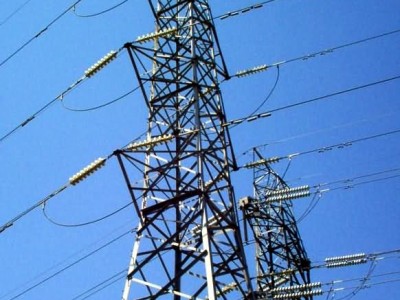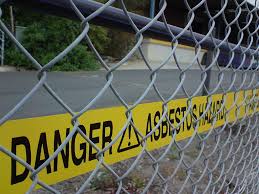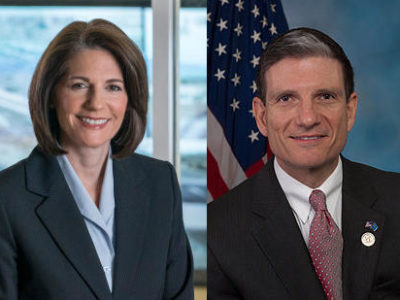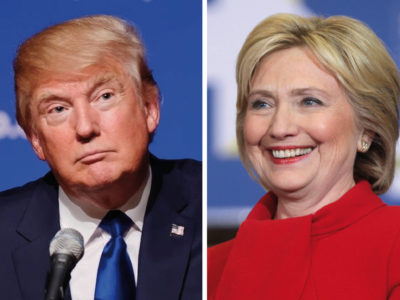The Clean Power Plan Oral Arguments
After marathon hearing, EPA comes out on top
Greetings, Legal Planet readers! As many of you know, I left the UCLA Law community several months ago for a new position in the environmental law world. But today, I emerge from blog-retirement for one very special post: insights from Tuesday’s oral arguments in the D.C. Circuit Court of Appeals over EPA’s Clean Power Plan. A full audio recording of the oral argument is posted on the D.C. Circuit's website. I warn you, however, that it is like listening to talk r...
CONTINUE READINGThe Impact of a Trump Presidency, in Tons of CO2
A Trump presidency would add 2.4 billion tons of CO2 to the atmosphere. At a minimum.
One of Trump's pledges is to eliminate Obama's Clean Power Plan. That wouldn't be quite as easy as he thinks, but there's little doubt that he could do so. So, how much difference would that make? The answer turns out to be 2,470,000 tons of additional carbon emissions. That's a bare minimum; the actual added carbon due to Trump could be much, much higher. Carbon lasts a long time in the atmosphere: about 20% of this extra Trump carbon will still be there in a ...
CONTINUE READINGThe Machine at the Center of the Clean Power Plan
By William Boyd, Ann Carlson and Cara Horowitz
As attention shifts from last night's debate to today's oral argument on the Clean Power Plan, we thought it worth focusing on the machine at the heart of the President's plan to cut greenhouse gases from the electric power sector: the electricity grid. You might think that the largest machine in the United States is one of West’s hydroelectric dams, or perhaps a huge assembly-line factory or an underground particle accelerator. But instead, it's our interconnect...
CONTINUE READINGTrump Embraces His Inner Denialist
Nobody loves coal, oil and gas more than Donald Trump.
Donald Trump has pledged to wipe out Obama's climate change efforts, including the Clean Power Plan and the Paris Agreement. His choice to head the transition team for EPA shows how little his view of climate change has evolved since he tweeted that "the concept of global warming was created by and for the Chinese in order to make U.S. manufacturing non-competitive." He claimed as recently as Tuesday night that he didn't say this, but the thing about the Internet is...
CONTINUE READINGWill EPA Finally Ban Asbestos?
A look at the risks the substance presents, efforts to ban its continued use in the United States, and the role of TSCA reforms
Today millions of people will tune in to watch the first 2016 Presidential Debate. I’m popping the popcorn for what promises to be quite the spectacle! But while the debate takes center stage, other events make today significant as well. Most important for me, September 26th marks the 12th annual Mesothelioma Awareness Day in the United States. In recognition of this day, this blog post addresses the primary cause of mesothelioma: asbestos. We’ve all heard...
CONTINUE READINGObama Administration Takes On Local Barriers To New Housing
Restrictions on housing supply in high-wage cities have created a national economic and environmental crisis
The White House Council of Economic Advisers has been making noise in the past year about how local restrictions on housing across the country has created a national economic drag. But now the council has come out swinging against these "not-in-my-backyard" local policies. In a new "Housing Development Toolkit" [PDF], the White House summarizes how the rise in local land use restrictions has hurt housing affordability across the country by restricting supply. It cites...
CONTINUE READINGBattle for the Senate: Nevada
A tight race with sharply contrasting candidates. Want to gamble on the outcome?
The two major party candidates in the Nevada race agree on the desirability of renewable power, but that's about all they agree on. Joe Heck, a Republican doctor with extensive military experience, favors streamlined permitting for renewable project on federal lands and wants state governments to get a share of the benefits. But he also says he has "supported legislation to protect the coal industry from President Obama's harmful regulation and the EPA's overzealous ...
CONTINUE READINGEnergy Policies Worthy of Debate
Ten questions to ask Clinton and Trump about energy policy.
As we enter the brief debate season prior to the presidential elections, it is easy to anticipate that we won’t see much time set aside for discussing energy policy. That’s not the case for the graduate students in an energy policy class I am currently teaching at the Goldman School of Public Policy. Last week, the students studied the formal statements of the four major presidential candidates and discussed their findings. Perhaps not surprisingly, they discovered a...
CONTINUE READINGReproductive Rights Meet . . . Waste Disposal Law?
Texas aims to limit abortion via environmental regulation
All know that by a 5-3 vote, the U.S. Supreme Court in June struck down as “undue burdens” on the exercise of reproductive rights the State of Texas’s 2013 restrictions on abortion facilities. Those rules required facilities to meet illogical physical premises requirements and to have physicians with local hospital admitting privileges – privileges the Court deemed to play “no relevant credentialing function.” (Whole Woman’s Health v. Hellerstedt, 579 U...
CONTINUE READINGReviewing the REVIEW Act
This bill is in the running for the all-time "lame legislation" prize.
You can tell right away that this bill -- passed by the House only yesterday -- is a really clunker. The title is Require Evaluation Before Implementing Executive Wishlists Act of 2016. Really, that's the best they could come up with? But it only gets worse. The bill provides that no "high-impact rule" can go into effect until the judicial review process is completely over. That's a truly dumb idea, because it totally ignores the benefits of the regulation. ...
CONTINUE READING











